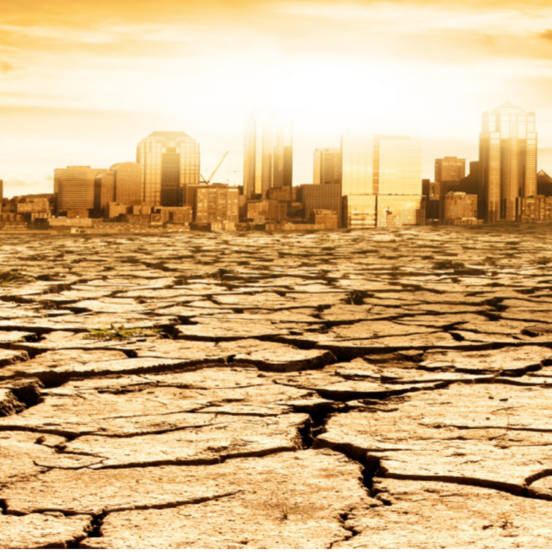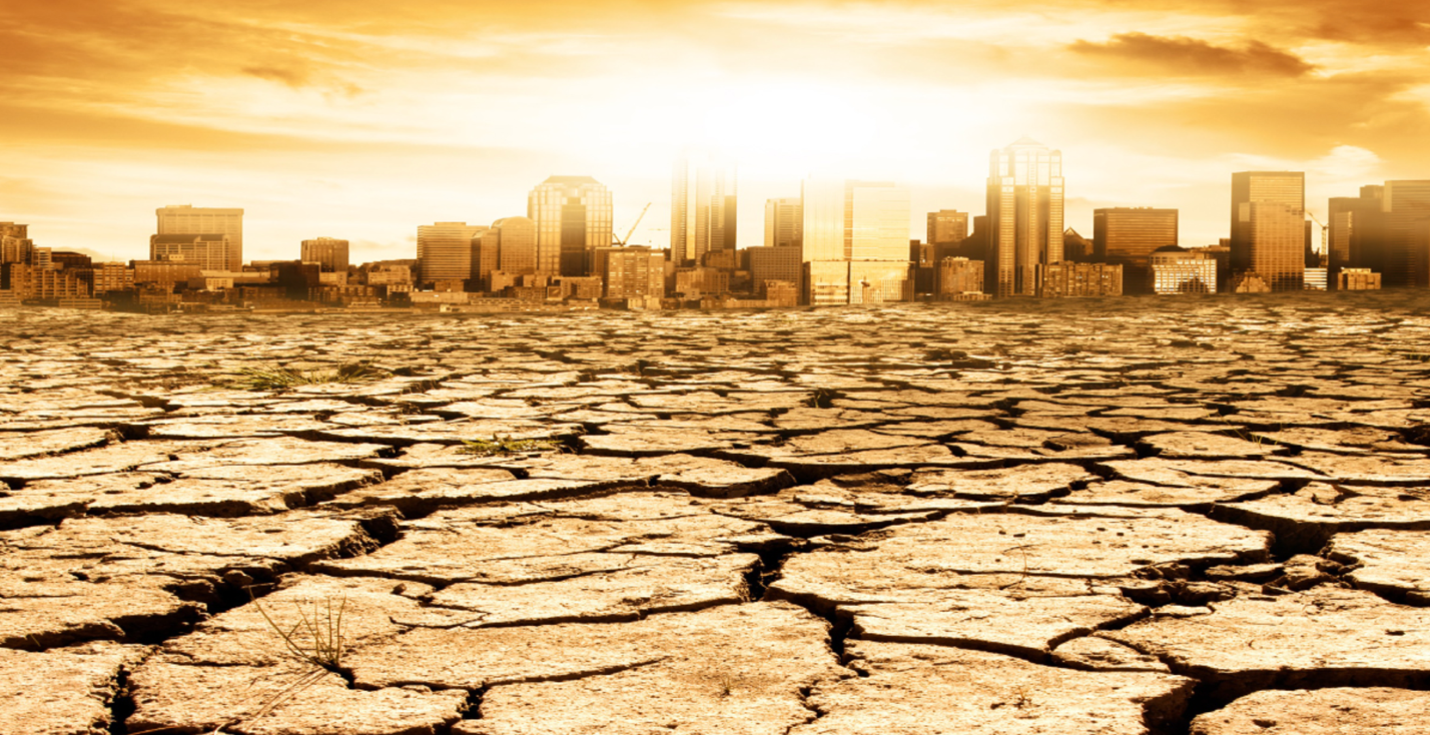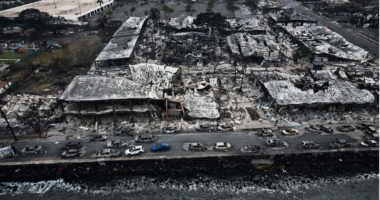Climate, Health and Equity Brief
The perils of partisanship and 1.5°C on the horizon
May 30, 2023

The Climate, Health & Equity Brief is GMMB’s take on the last two weeks’ news on the current impacts of climate change. If you haven’t subscribed yet, you can do so by clicking here.
Hot Topic: Striking numbers. Yet again this week, several new studies highlight the deadly impacts climate change is already having on our health and well-being and how much worse they could get without prompt action.
First, a new study warns that if global temperatures increase 2.7°C (4.86°F) above pre-industrial levels—just 1.2°C (2.16°F) above today—one-quarter to one-third of humanity will live under conditions outside of the so-called ‘climate niche’ in which humanity has flourished, subjecting billions to ‘phenomenal’ human suffering. The same study found that limiting warming to just 1.5°C (2.7°F) would cut those numbers by 80%.
Unfortunately, the World Meteorological Organization (WMO) reports that there is now a 66% chance the world will reach the 1.5°C threshold within the next five years, thanks to a persistent lack of ambitious climate policy from the world’s worst-emitting countries. Yet another WMO study found that 90% of the two million deaths due to extreme weather disasters in recent decades have occurred in developing countries—those whose populations have contributed the least to climate change.
Meanwhile, climate impacts continue to intensify around the world. Among other news, this week’s brief brings reports of 100-year flooding in Italy, a record-shattering heat wave in Asia, and the unprecedented need for three U.S. states to slash their water use from the drought-stricken Colorado River. This, just as the Supreme Court rolls back protections for some carbon-sequestering wetlands, Montana’s Republican legislature and Governor enact one of the strongest anti-climate laws in the country, and a new Ipsos poll shows that 49% just of Americans believe climate change is caused by human activity.
Thankfully, domestic progress continues in other areas. A carbon-free nuclear power plant in Georgia will soon become the single largest source of electricity output in the U.S., the Biden administration announced an $11 billion investment to bring affordable clean energy to rural communities nationwide, and thanks to the recent infrastructure law, the push to replace the nation’s school bus fleet with electric buses is now underway. With so much of the disconnect on climate in the U.S. being driven by the partisan culture wars, one cannot overstate the importance of the 2024 elections to the state of the planet’s future.
Human Health
A new study warns that if global temperatures exceed 2.7°C (4.86°F) of warming above pre-industrial levels, an estimated two billion people will live under conditions outside the ‘climate niche’ in which humans have flourished, while enacting climate policies that would successfully limit warming to 1.5°C (2.7°F) would cut that number by 80%. (The Guardian)
A new report from the World Meteorological Organization (WMO) says there is now a 66% chance the world will reach 1.5°C of warming within the next five years—the first time those odds have ever exceeded 50%. (Reuters)
A new study from the World Weather Attribution group confirmed that the deadly April heat wave in southern Asia during which temperatures reached 113°F was made at least 30 times more likely by climate change. (AP News)
A new study found that if a heat wave coincided with or caused a multi-day blackout in Phoenix, Arizona, nearly half the city’s population would require emergency care and nearly 13,000 would die—a stark warning as blackouts have more than doubled nationwide since 2015. (The New York Times)
In Colorado’s San Luis Valley, decades of climate-driven drought have contributed to higher arsenic levels in drinking water—a situation that studies have found puts people at higher risk of health ailments including coronary heart disease, hypertension, diabetes and cancer. (NPR)
Planetary Health
California, Arizona and Nevada announced their agreement to cut their use of Colorado River water by 13% by 2026, an unprecedented measure designed to save the river responsible for supplying drinking water to 40 million people. (The Wall Street Journal)
A new study found that composting food scraps can achieve up to an 84% decrease in landfill emissions, yet while the U.S. discards the equivalent of a whopping 130 billion meals annually, only eight states have enacted laws to prevent food scraps from entering landfills. (Grist)
Indonesia’s capital city of Jakarta is sinking—in some places up to a foot per year—due to both illegal well digging and climate change-fueled sea level rise, prompting a high-stakes plan to relocate the capital to Nusantara, a carbon-neutral city on the island of Borneo. (The New York Times)
A once-in-a-century flood hit previously drought-stricken northern Italy last week, causing at least 280 landslides, killing at least 14 people and displacing another 30,000. (Time, CNN)
Equity
A new report by the World Meteorological Organization identified nearly 12,000 weather-related disasters that occurred from 1970 to 2021 at a surging pace, resulting in 2 million deaths, of which more than 90% were in developing countries. (Al Jazeera)
Politics & Economy
The Supreme Court weakened the EPA’s power to regulate water pollution under the Clean Water Act, ruling that the Act does provide authority to regulate certain discharges into wetlands—vital wildlife habitats and carbon sinks—which experts warn will leave them vulnerable to pollution. (CNN)
A new report from the UN Environment Programme (UNEP) finds that global plastic pollution could be reduced by 80% by 2040 by eliminating unnecessary plastics, increasing reuse and recycling, and adopting greener alternatives—moves that experts say would improve human health and the environment while creating economic benefits worth trillions of dollars. (The Guardian)
As the need for climate action intensifies, data show that in the U.S., it now takes an average of five years for clean energy projects to become operational, the number of renewable projects awaiting connection to the grid has skyrocketed, transmission lines can take 8-15 years to build, and local communities are increasingly rejecting wind and solar farm projects. (The Washington Post)
A new survey reveals that 68% of U.S. respondents support the construction of carbon capture facilities—including 69% of white, 67% of Latinx and 63% of Black respondents—yet some concern and skepticism remain about the environmental impact, feasibility and funding of such initiatives. (POLITICO)
Despite fierce opposition from environmentalists, Republican lawmakers in Montana passed an aggressive new anti-climate law that bars state agencies from considering climate impacts when permitting large projects, including coal mines and power plants. (Inside Climate News)
According to a new Ipsos poll, just 49% of Americans believe climate change is caused mostly by human actions, unchanged from Ipsos’ polling on the topic in 2017. (The Hill)
Life as We Know It
Rising seas and intensifying storms are swallowing beachfront homes in idyllic Rodanthe, NC, forcing county leaders to choose between fortifying the beach with tons of sediment or buying out homes near the high-tide line, neither of which the county can afford without federal assistance. (The Washington Post)
A new investigative report finds that despite touting their sustainability efforts, many U.S. universities still heavily invest in and receive donations from the fossil fuel industry, like the University of Texas system, which received $2.2 billion in oil and gas royalties in 2022 alone. (CBS News)
Action
The U.S. Department of Agriculture announced a nearly $11 billion investment to help electric cooperatives, renewable energy companies, and electric utilities bring affordable clean energy to rural communities nationwide. (AP News)
Thanks to the 2021 infrastructure law, the movement to replace the U.S. school bus fleet with electric buses is gaining momentum, with more than 5,600 buses, or 1% of the nationwide fleet, funded, ordered or operating to date. (Canary Media)
The Vogtle nuclear power plant in Georgia will soon become the single largest source of electricity output in the U.S. as it brings online the first two new reactors licensed and built domestically in decades, reinvigorating calls for carbon-free nuclear power despite the project’s high costs and delays. (Bloomberg)
Kicker
Looking for some climate inspiration? Check out Future Forward, a six-part docuseries from The Climate Pledge that focuses on a range of current climate solutions. (World Economic Forum)
A healthy planet and healthy people are two sides of the same coin.”
– Dr. Margaret Chan
The GMMB Climate, Health & Equity Brief would not be possible without the contributions of the larger GMMB team— Aaron Benavides, Thomas Baer, Stefana Hendronetto, Sharde Olabanji, and Quincy Tichenor. Feedback on the Brief is welcome and encouraged and should be sent to CHandEBrief@gmmb.com.






